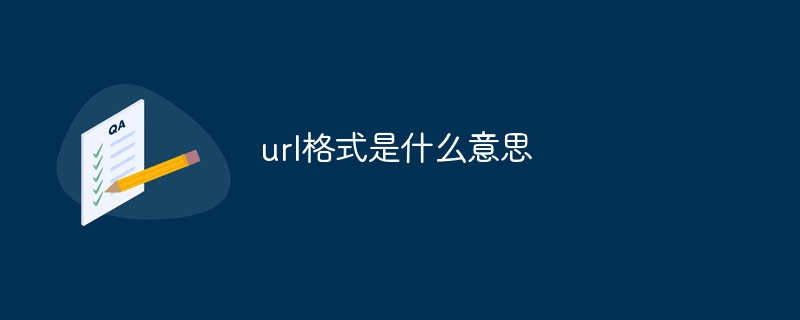URL format defines an address format that uniquely identifies and locates resources on the network. Its components include: protocol, subdomain name, domain name, path, query string, and fragment identifier. URL formats are used to locate resources, link pages, and convey information.

What is the URL format?
URL (Uniform Resource Locator) is an address format used to uniquely identify and locate resources (such as web pages, files, images, etc.) on the network.
Components of URL format:
A typical URL usually includes the following parts:
- Protocol:Identifies the transport protocol used to access the resource, such as HTTP, HTTPS, FTP.
- Subdomain name:indicates a specific part of the website or server where the resource is located.
- Domain name:The main name of the website or server.
- Path:Specify the location of the resource in the website or server.
- Query string:Optional parameters to pass additional information, starting with a question mark (?).
- Fragment identifier:Used to jump to a specific section within the page.
Example URL:
https://www.example.com/about-us?page=1#contact
Copy after login
- Protocol:HTTPS
- Subdomain name:www
- Domain name:example.com
- Path:about-us
- Query string:page=1
- Fragment identifier:contact
Purpose of URL format:
- Resource location:Allow users and applications to access network resources through unique addresses.
- Linked pages:Connect different web pages through hyperlinks to create navigation paths between websites or applications.
- Passing information:Query strings can be used to pass additional information to the server for filtering, searching, or other dynamic operations.
The above is the detailed content of What does url format mean?. For more information, please follow other related articles on the PHP Chinese website!






